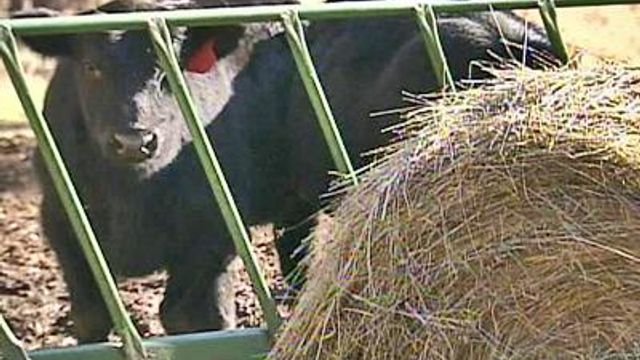Deal Reached on Drought Aid for N.C. Farmers
State and federal governments will be giving much-needed to relief to North Carolina farmers sapped by the record-setting drought.
Posted — UpdatedAgricultural losses for the year will total $573 million, according to a report released Monday by the state Department of Agriculture and Consumer Services. More than half of those losses – $382 million – will come directly from farmers, while the remainder will cut into the state's related economic activity.
That news came the same day that the U.S. Senate voted, 79-14, to pass the Farm Bill (H.R. 2419), an omnibus spending bill.
"Without this disaster assistance, there are a lot of farmers that might not be able to farm next year, and they are now sitting around tables making decisions," U.S. Rep. Bob Etheridge, D-Lillington, said. "This will now help farmers make their decisions with their bankers to get the job done."
The bill amends a provision signed by President George Bush in May that provided $3 billion in agriculture assistance for declared disasters in 2005, 2006 and 2007, but set a deadline of Feb. 28, 2007, effectively leaving out farmers affected by the drought.
The bill passed on Monday extends that deadline to Dec. 31, allowing farmers affected by the drought to be eligible for direct disaster assistance. The funding is mandatory money, obligating the federal government to provide what is necessary for farmers. The deal was estimated to cost about $600 million.
In September, the U.S. Department of Agriculture designated 85 North Carolina counties as primary disaster areas. That designation made farmers in those counties eligible for low-interest emergency loans, but the bill passed Monday provides for direct payments.
Soybean farmers suffered the greatest damages at $130 million in North Carolina, according to the state agriculture department's report. Those numbers, however, did not count losses for the livestock, poultry and dairy industries that have also struggled through the drought.
The drought has endangered the state's 800,000 cattle, because there was not enough rain to grow hay this summer. According to Monday's report, farmers across the state lost about $91 million in hay and pasture crop in 2007.
Some livestock farmers said they are paying up to three times the normal price to ship it in from out-of-state.
"It's a huge problem. Hay production is down 45 percent in North Carolina compared to last year," Brian Long, spokesman for the state agriculture department, said.
Bill Wallace said the hay shortage has complicated feeding the 30 cattle on his Wake Forest farm while preparing for winter and mating season. He invested several thousand dollars to stock up on hay early.
"Normally, we don't start feeding hay until after the first of the year, but we had to start earlier this year," Wallace said. "Because of the drought, we had to buy a little more feed, a little more purchase feed. I had to buy 100 bales of hay, which I usually don't."
The Council of State recently agreed to spend up to $3.5 million to purchase approximately 100,000 bales of hay from out of state. State agricultural officials have begun developing a plan to create hay stockpiles, which should "bring some hay into the state that's going to help farmers who may find themselves in an emergency situation," Long said.
"Whatever the state can do to help people will be a benefit," Wallace said.
The Farm Bill next will go into a conference session where the Senate and House will work out differences in competing versions of the legislation. It then goes to Bush's desk for his signature.
• Credits
Copyright 2024 by Capitol Broadcasting Company. All rights reserved. This material may not be published, broadcast, rewritten or redistributed.






